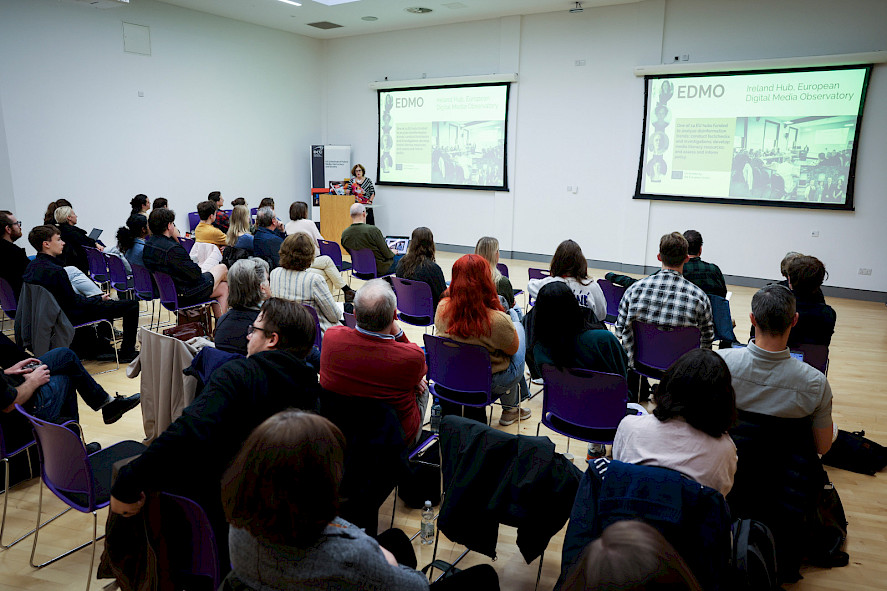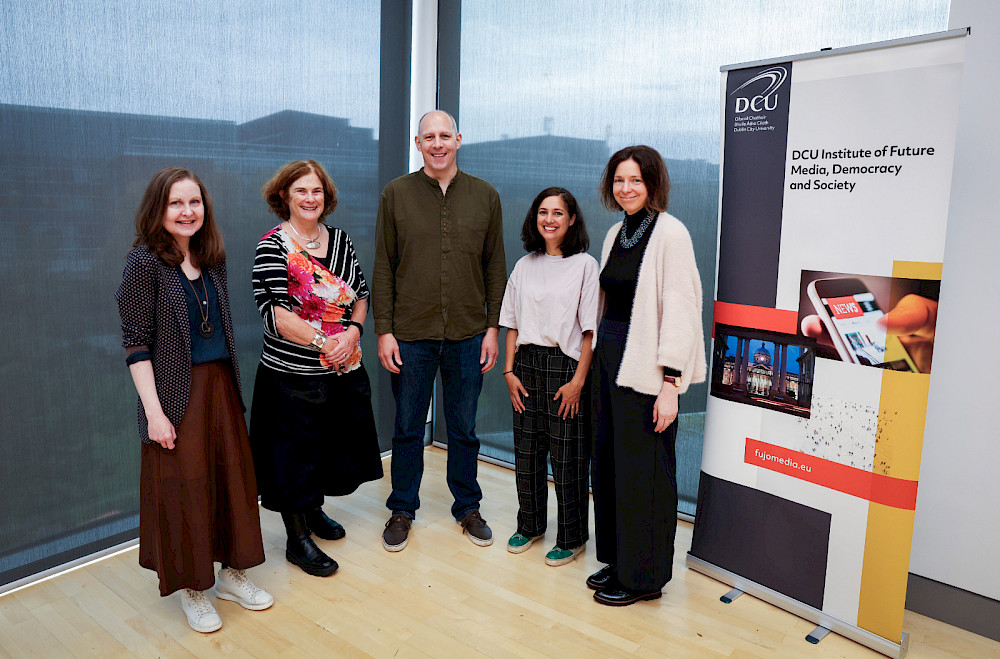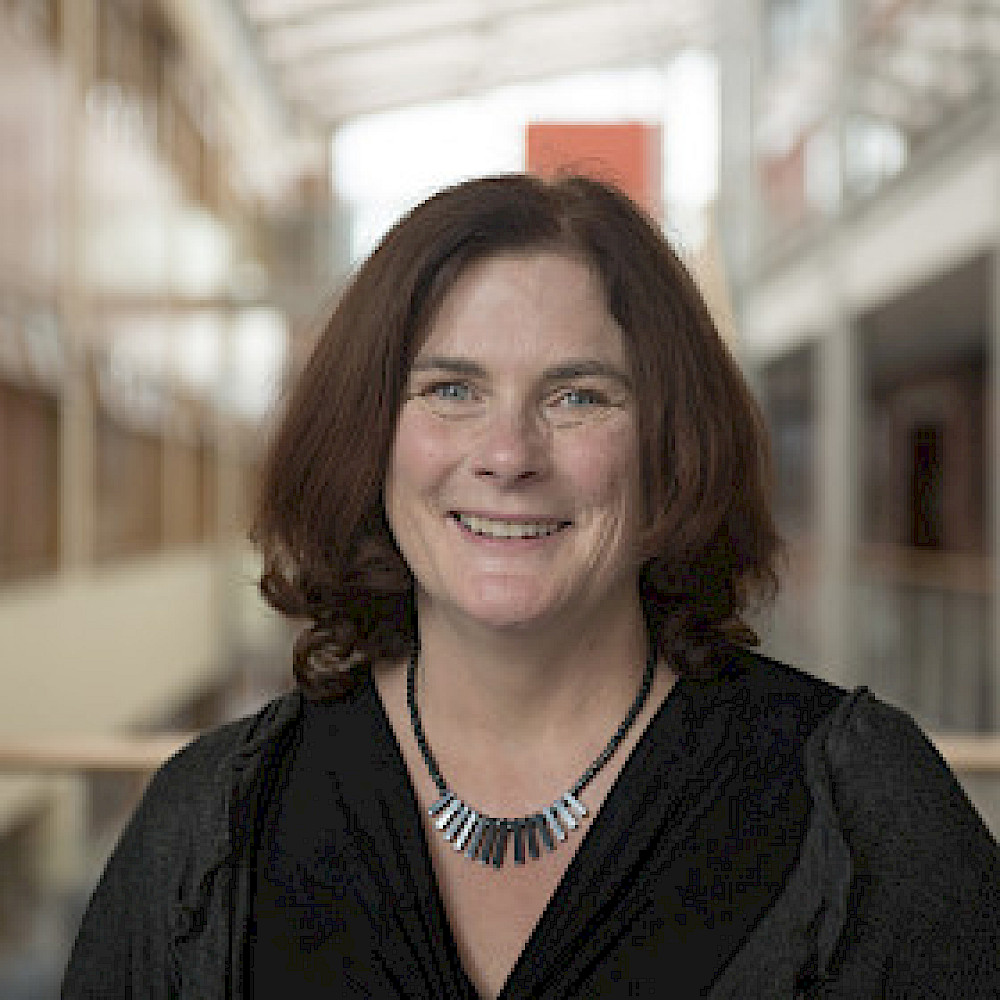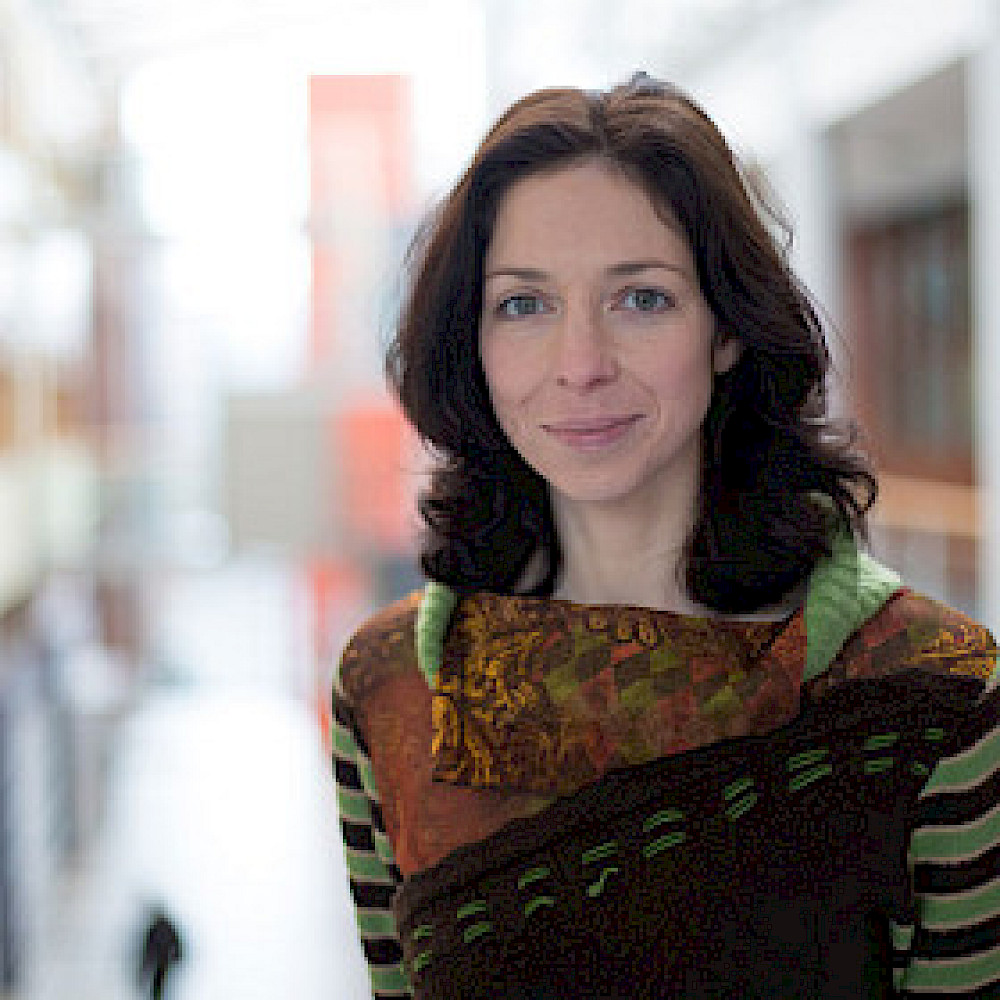Last week we celebrated the 10th anniversary of the DCU Institute for Future Media, Democracy and Society (FuJo) with a special event on investigative journalism. Prof. Jane Suiter, FuJo Director, opened with an overview of the institute’s research strands and landmark projects, before Deputy Director Dr. Eileen Culloty introduced our keynote speaker, Malachy Browne, and panellists Maria Delaney and Lois Kapila.
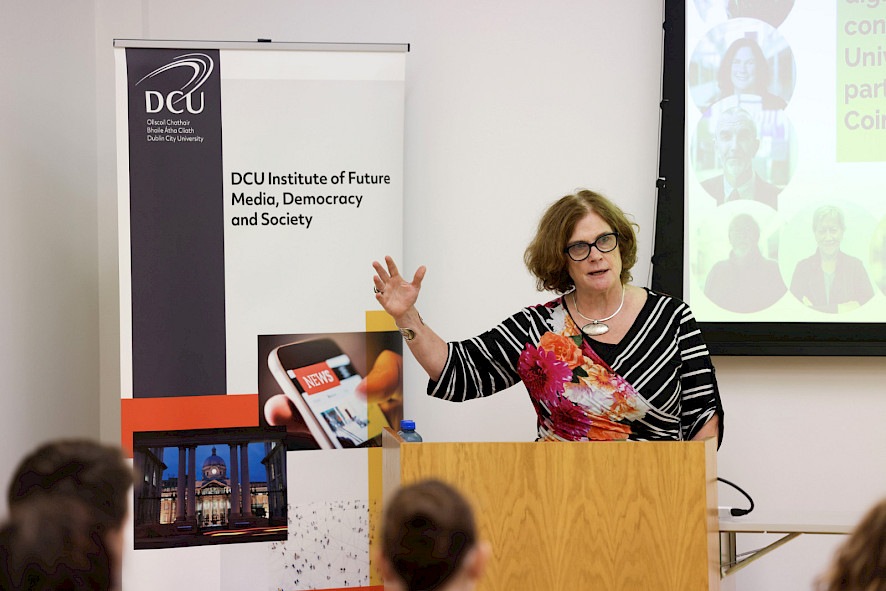
Malachy, who co-founded the Visual Investigations unit at The New York Times, gave an extraordinary insight into how journalism can harness digital forensics to deliver for democracy. His team’s work has been cited in murder trials, debated at the UN Security Council, and led directly to reforms and inquiries. He shared how his unit combines open-source reporting, audio-visual analysis, on-the-ground sourcing, and digital tools to challenge official denials of wrongdoing, presenting two standout case studies: identifying the Russian military unit and commander responsible for civilian killings in Bucha, and investigating the killing of unarmed medics and rescue workers by the Israel Defence Forces in Gaza this year. He also reflected on the use of AI as a reporting tool in the newsroom and the anti-press playbook being implemented in the United States.
In the panel discussion, Malachy was joined by Maria Delaney, who leads The Journal’s Investigates unit (emerging from the innovative Noteworthy platform) and whose team has exposed issues around data centres, healthcare, and state spending, and Lois Kapila, founder of the Dublin Inquirer, which over the past decade has carved out a unique role investigating life in the city while also championing inclusivity in journalism and amplifying underrepresented voices.
Together, they discussed why it is worth investing so much time and resource into one story, how to convince editors and funders of that value, how to decide which stories are worth pursuing, and the challenges of accessing reliable information. From Bucha to Dublin, from digital forensics to local accountability, the event powerfully demonstrated why investigative journalism matters and why it remains vital to democracy and society.
